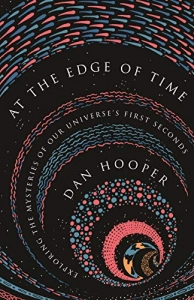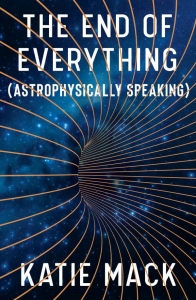“Exploring the Mysteries of Our Universe’s First Seconds” with Dr Dan Hooper
Scientists now have a good understanding of how our universe evolved over the past 13.8 billion years, but we know very little about what happened in the first few seconds after the Big Bang. Dr Dan Hooper, a senior scientist at Fermi National Accelerator Lab and a professor of astronomy and astrophysics at the University of Chicago, emphasises that understanding the earliest moments of the universe is vital to tackle, and to decipher mysteries such as dark matter and dark energy. In his book “At the Edge of Time: Exploring the Mysteries of Our Universe’s First Seconds” Hooper outlines four foundational questions as puzzles that we must solve and the key to solving these puzzles is in understanding what happened at the very beginning of our universe.
In this episode of Bridging the Gaps I speak with Dr Dan Hooper. We discuss intriguing questions and fascinating research that he presents in the book “At the Edge of Time: Exploring the Mysteries of Our Universe’s First Seconds”. At the start of the book Hooper gives a thorough description of the timeline of how we got here where we are now from the Big Bang to the present day and how did our universe evolve over the past 13.8 billion years; he presents this narrative backwards, from the present time to the Big Bang. I open our conversation by asking him to describe this timeline and this journey from the present day to the Big Bang. We then discuss the four puzzles that Hooper outlines in the book and examine that understanding what happened in the first few seconds after the Big Bang holds the key to solving these puzzles. We also discuss the progress that is being made in developing a theory of everything, gravitational waves and his views on the multi universe theory. This has been a fascinating discussion with a very passionate researcher.
Compliment Professor Hooper’s insights with equally fascinating discussion with Dr Katie Mack “The End of Everything (Astrophysically Speaking”, and then listen to discussion with Nasa’s Spitzer project scientist Michael Werner “Spitzer Space Telescope: Discovering “More Things in the Heavens”.



Connect With Us